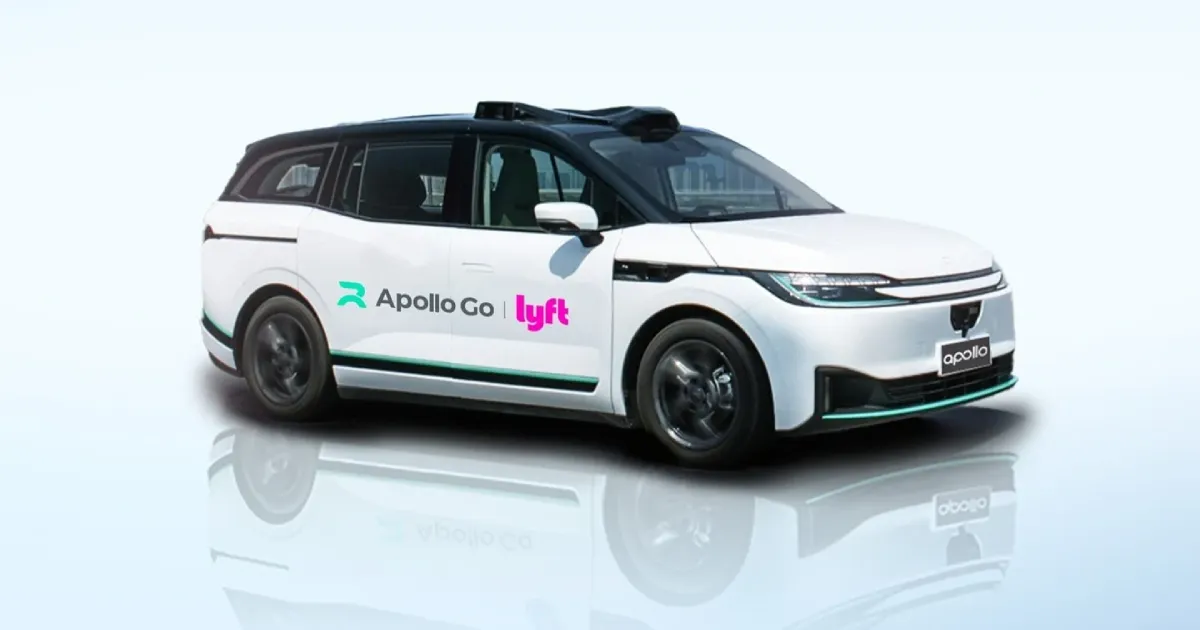Lyft partners with Baidu to launch robotaxis in Europe

Lyft is making a major play in the global robotaxi race by partnering with Chinese tech giant Baidu to bring autonomous vehicles to European streets. Announced in a press release on Monday, the San Francisco-based ride-hailing company said it would begin deploying Baidu's sixth-generation Apollo Go self-driving robotaxis across Europe starting next year.
The rollout will begin in the United Kingdom and Germany in 2026, pending regulatory approval. Lyft says it plans to bring thousands of Baidu’s electric autonomous vehicles to European cities over the next several years, marking a significant expansion of both companies' international footprints.
A Fusion of Tech and Transportation
“By integrating Baidu's cutting-edge autonomous driving technology with Lyft's platform reach and operational expertise, we're excited to deliver safer, greener, and more efficient mobility solutions to more users,” said Robin Li, Baidu’s cofounder and CEO.
Lyft CEO David Risher echoed this enthusiasm, adding that the partnership would bring the benefits of autonomous vehicles—such as increased safety, reliability, and user privacy—to “millions of Europeans.”
Apollo Go’s Growing Global Footprint
Baidu launched its Apollo Go robotaxi service in 2020 and currently operates in 11 cities across China, including Beijing and Wuhan. Earlier in 2025, Baidu also announced plans to expand Apollo Go services to Dubai and Abu Dhabi in 2026.
According to a July 2024 report by China’s Global Times, a 10-kilometer ride in one of Baidu’s robotaxis in Wuhan costs as little as 4 to 16 yuan ($0.60 to $2.20 USD), showcasing the technology’s potential for affordability and accessibility.
Lyft Expands European Ambitions
This partnership follows Lyft’s recent acquisition of Freenow, a ride-hailing service active in nine European countries. Announced just days ago on July 31, the move signals Lyft’s aggressive push into the European market, where it has previously struggled to gain traction against more established players.
With the Baidu partnership, Lyft could leapfrog traditional competitors by offering fully autonomous rides sooner than many European firms are prepared to do.
A Crowded—and Cautious—Robotaxi Race
The global robotaxi space is heating up, particularly in the U.S., where Elon Musk's Tesla and Alphabet-owned Waymo are leading the charge. Tesla recently allowed riders to hail robotaxis in the San Francisco Bay Area and Austin, according to a July 31 post by Musk on X.
Despite the hype, analysts remain cautious. A July report from HSBC warned that it could take years before autonomous taxis become profitable, calling the market “widely overestimated.”
Still, the Baidu-Lyft partnership may represent a bold step toward making driverless ride-hailing a reality for everyday commuters in Europe.
Bottom Line: Lyft and Baidu are betting big on autonomy, aiming to transform urban mobility in Europe with a combination of advanced technology and platform scale. As competition intensifies, the streets of London, Berlin, and beyond may soon become testing grounds for the next generation of transportation.





